Polycystic Ovarian Syndrome
Polycystic Ovarian Syndrome or ‘PCOS’ isn’t given the importance it deserves even though it’s the main cause of infertility due to anovulation (absence of ovulation) in women in their reproductive years.
Being diagnosed with PCOS can be a major life event for many women and without proper management, it can lead to the development of serious chronic illnesses.
So what is PCOS?
PCOS is an endocrine disorder (referring to the glands which secrete hormones related to reproductive function among many other systems) affecting 10% of reproductive-age women. It is characterized by high levels of androgens (male hormones such as testosterone) from the ovary and is associated with insulin resistance. Typically, multiple follicles (mistakenly called “cysts”), surround the ovaries. These cysts are actually a result of hormonal imbalances and not the cause of them.
Excessive production of androgens can also lead to a number of other symptoms such as acne and pigmentation, weight gain, irregular or absent periods, severe cramping when bleeding and excessive hair growth. For some, these symptoms can become quite debilitating and can cause anxiety and low self-esteem.
Diagnosing PCOS
Your gynaecologist or your endocrinologist might ask if you have the following blood tests as well as a pelvic ultrasound to help with your diagnosis:
Oral glucose tolerance test (OGTT)
HbA1C
Follicle-stimulating hormone (FSH) and Leutinising hormone (LH)
Total and free testosterone.
This might seem intimidating or complex, but it is important for your doctors to understand clearly and create a complete picture of how your body is functioning to resolve a proper diagnosis.
What causes it?
PCOS is not a new condition, but medical professionals still do not know what the causes are. What we do know, after extensive research, is that at least in part, PCOS is greatly influenced by the complex interplay between your genes and family history. Research also suggests that lifestyle factors can also greatly influence the red flag of PCOS which is insulin resistance (basically when the cells of your body don’t respond very well to the insulin being produced by your pancreas). Many people are alerted to their condition by the weight gain associated with insulin resistance.
PCOS and Weight Loss - What’s the Buzz?
Losing weight with PCOS can sometimes seem impossible. But let’s get down to business and understand how lifestyle interventions can help.
When dealing with weight loss, we generally tend to follow the generic guidelines for weight loss. However, PCOS is a condition involving the very complex interplay of hormones. Because the metabolism goes haywire due to disordered hormones and insulin resistance, it’s important to focus on certain and specific aspects of your daily diet, which will really help in cutting down weight and improving symptoms.
With the PCOS diet we focus on the following outcomes:
Supporting your fertility
Regularising the menstrual cycles
Improving insulin resistance
Weight loss and skin improvement.
PCOS and Dairy - Is There a Relation?
There is very scarce clinical data linking dairy consumption to PCOS and acne. There are literally only two scientific studies on this specific subject. One study, published in the Journal of Obesity Weight Loss Therapy, found that a low-starch and low-dairy diet is beneficial for PCOS, but it only assessed 24 women. The other, published in the International Journal of Preventative Medicine, found a higher consumption of low-fat and fat-free dairy among women with PCOS but was based on self-reported dairy intake information and wasn't a randomized controlled study (which just means that the results of these studies cannot be generalized for the population).
In general, it’s advisable to pay attention to how your body reacts to dairy. If dairy products don’t make your skin break out and you don’t have lactose intolerance, feel free to enjoy 2-3 servings of dairy products per day and even full-fat dairy products in moderation.
Low Glycemic Index Foods and PCOS - Is This Important?
“Glycemic Index” (“GI”) is nothing but a tool to classify carb-rich foods according to their ability to elevate blood sugar levels after consumption.
High GI foods (GI ≥ 70) will raise blood sugar levels rapidly, triggering a large release of insulin at the same time, while low GI foods, (GI ≤55 ), will produce a slow rise in blood sugar levels, which is associated with a smaller release of insulin. And since hyperinsulinemia is a great causative factor for PCOS, we definitely need to keep a check on high insulin and high blood sugar levels.
Moreover, all of the low GI foods will be rich in dietary fibre and other complex nutrients which will also help you lose weight. Examples of food swaps include - using a multigrain or high-fiber bread to make your sandwiches instead of white bread and swapping your processed breakfast cereals for a classic rolled oats.
Herbs for PCOS - Is There Any Evidence?
Fenugreek Seeds - Traditionally, fenugreek seeds have been used not only as a culinary spice but also for treatment of several diseases and conditions. The major bioactive compounds present in fenugreek are galactomannans and saponins. Several research studies have indicated these components’ potential role in regulating insulin in the body which is effective not only for diabetics but also for women suffering from PCOS.
Cinnamon- There is ample scientific backing available to support the idea that calculated doses of cinnamon not only help with restoring the regularity of menstrual cycles but also making the body more sensitive to insulin, thereby correcting the hyperinsulinemia in PCOS.
Practical tips
Eat at set times and avoid skipping meals.
Include a daily exercise routine as exercising helps in improving insulin sensitivity and bringing the hormone levels back to normal.
Focus on a high-fibre and low-GI diet to improve weight outcomes and overall health.
Do not follow any fad or restriction diets as they do not usually fulfil your nutritional requirements. Instead focus more on a wholesome, balanced one.
Keep a check on your “late-night hunger pangs” as they can greatly fluctuate the insulin levels.

